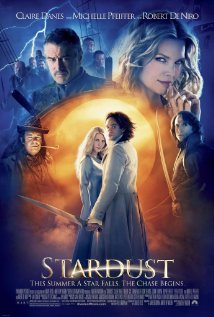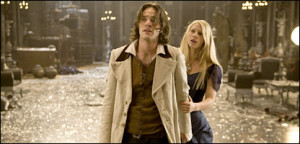 The human race has an obsession with magic and the fantastical. As a Christian, I believe this obsession with fairy tales, fantasy, and magic is an imprint of the supernatural, the Imago Dei, on humanity. What appears to some to be a mere grasping at our finitude and a coping mechanism for the inevitable finality of death and injustice of suffering is really a deeper, soulful longing for a return to our true home with our true love and true joy, God himself.
The human race has an obsession with magic and the fantastical. As a Christian, I believe this obsession with fairy tales, fantasy, and magic is an imprint of the supernatural, the Imago Dei, on humanity. What appears to some to be a mere grasping at our finitude and a coping mechanism for the inevitable finality of death and injustice of suffering is really a deeper, soulful longing for a return to our true home with our true love and true joy, God himself.
As J.R.R. Tolkien says in his essay On Fairy Stories:
“The consolation of fairy stories, the joy of the happy ending; or more correctly, the good catastrophe, the sudden, joyous “turn” (for there is no true end to a fairy tale); this joy, which is one of the things that fairy stories can produce supremely well, is not essentially escapist or fugitive. In it’s fairy tale or other world setting, it is a sudden and miraculous grace, never to be counted on to reoccur. It does not deny the existence of dyscatastrophe, or sorrow and failure, the possibility of these is necessary to the joy of deliverance. It denies, (in the face of much evidence if you will) universal final defeat and in so far is evangelium, giving a fleeting glimpse of Joy, Joy beyond the walls of the world, poignant as grief.”
This Joy is a vapor or a whiff of the divine, of hope, of the Gospel (evangelium). So, when a director like Matthew Vaughan makes a movie like Stardust, it is a wondrous return to these fantastical elements that are inside of us. Taking place in the English countryside town of Wall, which shares a border with a magical land, it follows the story of Tristan Thorn (Charlie Cox), a young man with fantastic origins and a heart for a young woman (Sienna Miller). He goes off on an adventure in the spirit of his father (Ben Barnes/Nathaniel Parker) to win the heart of the woman he yearns for and is swept up in an adventure when he meets Yvaine (Claire Danes), a fallen star, and the royal heirs (Mark Strong/Jason Flemyng) and witch (Michelle Pfeiffer) who are after her. 
So often we become disillusioned by these tales where the good guy wins and the bad guy loses and true love triumphs. Vaughan is adapting from Neil Gaiman’s novel, borrowing elements from C.S. Lewis, Grimm Fairy Tales, Tolkien, Rowling, and, dare I say, George Lucas, but breathes fresh life into this romantic story. It is not slavishly burdened with catching up, backstory, and minutiae other fantasy films struggled with in the mid-2000s, i.e. Harry Potter. The treat is in the story, the clever writing that makes it like a raunchy The Princess Bride, and actors capturing your attention from the second they appear on-screen. You fall for this tale and its characters, especially Tristan and Yvaine, and by the end you really do believe love is magic.
Like The Princess Bride, Big Fish, and Star Wars, it’s not real, it is fantasy, but it captures the imagination and is unapologetically joyous and heart-warming. If any of those movies have struck a chord in your heart, than I venture Stardust will do likewise.

